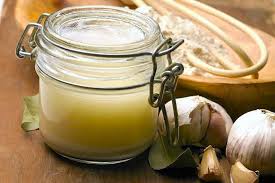Home Remedies for Toothache
Your head pounds, your gums throb, and your mouth is sore and tender. You’ve got a toothache. See your dentist ASAP. In the meantime, use these home remedies to get short-term relief.
Cavities, loose fillings, a cracked tooth, an abscess (a pocket of infection at the gum line), or a sinus condition can all bring on the dreaded toothache pain. Until you can see the dentist, these trusted home remedies can provide toothache relief.
Here are the 8remedies for toothache
1. Saltwater Rinse
Until you can get to the dentist, one of the best things you can do is swish warm, salty water around in your mouth. A good mix is 1/2 teaspoon table salt to 8 ounces of water. Spit it out, don’t swallow it. You can also gently floss around the sore tooth to remove any bits of food that may be stuck
2. Clove oil
Cloves are a traditional remedy for numbing nerves; the primary chemical compound of this spice is eugenol, a natural anesthetic. But clove oil needs to be used carefully. Pouring the oil on the aching area can actually worsen the pain if you get it on sensitive gum tissue or on your tongue. Instead, put two drops of clove oil on a cotton ball and place it against the tooth itself until the pain recedes. In a pinch, use a bit of powdered clove or place a whole clove on the tooth. Chew the whole clove a little to release its oil and keep it in place up to half an hour or until the pain subsides
3. Soothe with tea
Peppermint tea has a nice flavor and some numbing power. Put 1 teaspoon dried peppermint leaves in 1 cup boiling water and steep for 20 minutes. After the tea cools, swish it around in your mouth, then spit it out or swallow. (Love the smell of peppermint? The oil is a known headache remedy.) Also, the astringent tannins in strong black tea may help quell pain by reducing swelling
4. Rinse with hydrogen peroxide
To help kill bacteria and relieve some discomfort, swish with a mouthful of 3% hydrogen peroxide solution. This can provide temporary relief if a toothache is accompanied by fever and a foul taste in the mouth (both are signs of infection), but like other toothache remedies, it’s only a stopgap measure until you see your dentist and get the source of infection cleared up. A hydrogen peroxide solution is only for rinsing. Spit it out, then rinse several times with plain water
5. Wash it with myrrh
You can also rinse with a tincture of myrrh. The astringent effects help with inflammation, and myrrh offers the added benefit of killing bacteria. Simmer 1 teaspoon of powdered myrrh in 2 cups water for 30 minutes. Strain and let cool. Rinse with 1 teaspoon of the solution in a half-cup water five to six times a day. (Are you making any of these everyday mistakes that could cause your teeth to decay
6. Distract with vinegar and brown paper
Another country cure calls for soaking a small piece of brown paper (from a grocery or lunch bag) in vinegar (which has so many other little-known uses, too), sprinkling one side with black pepper, and holding this to the cheek. (Bonus: black pepper is chockful of health benefits.) The warm sensation on your cheek may distract you from your tooth pain.
7. Brush with the right tools
Use a toothpaste that's designated “for sensitive teeth.” If you have a problem with shrinking gums, this could relieve a lot of the pain you probably experience from hot or cold foods. When gums shrink, the dentin beneath your teeth's enamel surface is exposed, and this material is particularly sensitive. Switch to the softest-bristled brush you can find to help preserve gum tissue and prevent further shrinking.
8. Apply pressure
Try an acupressure technique to stop tooth pain fast. With your thumb, press the point on the back of your other hand where the base of your thumb and your index finger meet. Apply pressure for about two minutes. This helps trigger the release of endorphins, the brain's feel-good hormones.
Your head pounds, your gums throb, and your mouth is sore and tender. You’ve got a toothache. See your dentist ASAP. In the meantime, use these home remedies to get short-term relief.
Cavities, loose fillings, a cracked tooth, an abscess (a pocket of infection at the gum line), or a sinus condition can all bring on the dreaded toothache pain. Until you can see the dentist, these trusted home remedies can provide toothache relief.
Here are the 8remedies for toothache
1. Saltwater Rinse
Until you can get to the dentist, one of the best things you can do is swish warm, salty water around in your mouth. A good mix is 1/2 teaspoon table salt to 8 ounces of water. Spit it out, don’t swallow it. You can also gently floss around the sore tooth to remove any bits of food that may be stuck
2. Clove oil
Cloves are a traditional remedy for numbing nerves; the primary chemical compound of this spice is eugenol, a natural anesthetic. But clove oil needs to be used carefully. Pouring the oil on the aching area can actually worsen the pain if you get it on sensitive gum tissue or on your tongue. Instead, put two drops of clove oil on a cotton ball and place it against the tooth itself until the pain recedes. In a pinch, use a bit of powdered clove or place a whole clove on the tooth. Chew the whole clove a little to release its oil and keep it in place up to half an hour or until the pain subsides
3. Soothe with tea
Peppermint tea has a nice flavor and some numbing power. Put 1 teaspoon dried peppermint leaves in 1 cup boiling water and steep for 20 minutes. After the tea cools, swish it around in your mouth, then spit it out or swallow. (Love the smell of peppermint? The oil is a known headache remedy.) Also, the astringent tannins in strong black tea may help quell pain by reducing swelling
4. Rinse with hydrogen peroxide
To help kill bacteria and relieve some discomfort, swish with a mouthful of 3% hydrogen peroxide solution. This can provide temporary relief if a toothache is accompanied by fever and a foul taste in the mouth (both are signs of infection), but like other toothache remedies, it’s only a stopgap measure until you see your dentist and get the source of infection cleared up. A hydrogen peroxide solution is only for rinsing. Spit it out, then rinse several times with plain water
5. Wash it with myrrh
You can also rinse with a tincture of myrrh. The astringent effects help with inflammation, and myrrh offers the added benefit of killing bacteria. Simmer 1 teaspoon of powdered myrrh in 2 cups water for 30 minutes. Strain and let cool. Rinse with 1 teaspoon of the solution in a half-cup water five to six times a day. (Are you making any of these everyday mistakes that could cause your teeth to decay
6. Distract with vinegar and brown paper
Another country cure calls for soaking a small piece of brown paper (from a grocery or lunch bag) in vinegar (which has so many other little-known uses, too), sprinkling one side with black pepper, and holding this to the cheek. (Bonus: black pepper is chockful of health benefits.) The warm sensation on your cheek may distract you from your tooth pain.
7. Brush with the right tools
Use a toothpaste that's designated “for sensitive teeth.” If you have a problem with shrinking gums, this could relieve a lot of the pain you probably experience from hot or cold foods. When gums shrink, the dentin beneath your teeth's enamel surface is exposed, and this material is particularly sensitive. Switch to the softest-bristled brush you can find to help preserve gum tissue and prevent further shrinking.
8. Apply pressure
Try an acupressure technique to stop tooth pain fast. With your thumb, press the point on the back of your other hand where the base of your thumb and your index finger meet. Apply pressure for about two minutes. This helps trigger the release of endorphins, the brain's feel-good hormones.















































